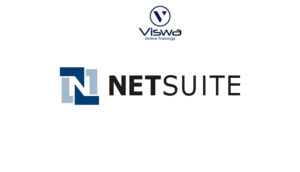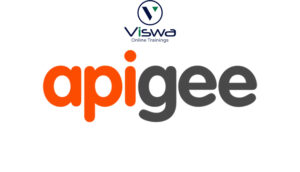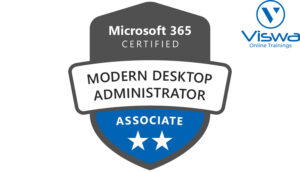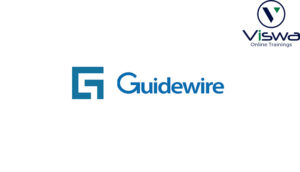PostgreSQL Certification Training
One of the top providers of online IT training in worldwide is VISWA Online Trainings. To assist beginners and working professionals in achieving their career objectives and taking advantage of our best services, we provide a wide range of courses and online training.
Learners : 1080
Duration : 15 Days
About Course
Our PostgreSQL was designed to work on UNIX-like platforms. We’ll look at PostgreSQL’s features and learn how it differs from other relational database management systems in this article. However, it was subsequently altered to be portable so that it could run on several operating systems, including Mac OS X, Solaris, and Windows. Enrol right away to get certified.
PostgreSQL Training Course Syllabus
✔ A Brief History of PostgreSQL
✔ Getting Started
✔ Installation
✔ Architectural Fundamentals
✔ Using the psql terminal based client
✔ Creating a Database
✔ Accessing a Database
✔ Creating a New Table
✔ Populating a Table With Rows
✔ Joins Between Tables
✔ Aggregate Functions
✔ Updates
✔ Deletions
✔ Views
✔ Foreign Keys
✔ Transactions
✔ Window Functions
✔ Inheritance
✔ Multicolumn Indexes
✔ Indexes and ORDER BY
✔ Combining Multiple Indexes
✔ Unique Indexes
✔ Indexes on Expressions
✔ Partial Indexes
✔ Setting up a Partial Unique Index
✔Operator Classes and Operator Families
✔Examining Index Usage
✔Full Text Search
✔ SQL Transaction Isolation Levels
✔ Read Committed Isolation Level
✔ Serializable Isolation Level
✔ Explicit Locking
✔ Table-Level Locks
✔ Table-level lock modes
✔ Conflicting lock modes
✔ Row-Level Locks
✔ Deadlocks
✔ Advisory Locks
✔ Using EXPLAIN
✔ PostgreSQL User Account
✔ Creating a Database Cluster
✔ Starting the Database Server
✔ Server Start-up Failures
✔ Client Connection Problems
✔ Shutting Down the Server
✔ Setting Parameters
✔ File Locations
✔ Preventing Server Spoofing
✔ Encryption Options
✔ Secure TCP/IP Connections with SSL
✔ Using client certificates
✔ SSL Server File Usage
✔ Creating a Self-Signed Certificate
✔ Connections and Authentication
✔ Connection Settings
✔ Security and Authentication
✔ Memory
✔ Kernel Resource Usage
✔ Cost-Based Vacuum Delay
✔ Background Writer
✔ Asynchronous Behaviour
✔ Write Ahead Log
✔ Settings
✔ Checkpoints
✔ Archiving/ Log shipping
✔ Point-in-time-recovery
✔ Query Planning
✔ Planner Method Configuration
✔ Planner Cost Constants
✔ Genetic Query Optimizer
✔ Other Planner Options
✔ Where To Log
✔ When To Log
✔ Message severity levels
✔ What To Log
✔ Using CSV-Format Log Output
✔ Run-Time Statistics
✔ Query and Index Statistics Collector
✔ Statistics Monitoring
| Live Instructor Based Training With Software |
| Lifetime access and 24×7 support |
| Certification Oriented content |
| Hands-On complete Real-time training |
| Get a certificate on course completion |
| Flexible Schedules |
| Live Recorded Videos Access |
| Study Material Provided |
PostgreSQL Training - Upcoming Batches
7th NOV 2022
8 AM IST
Coming Soon
AM IST
5th NOV 2022
8 AM IST
Coming Soon
AM IST
Don't find suitable time ?
CHOOSE YOUR OWN COMFORTABLE LEARNING EXPERIENCE
Live Virtual Training
-
Schedule your sessions at your comfortable timings.
-
Instructor-led training, Real-time projects
-
Certification Guidance.
Self-Paced Learning
-
Complete set of live-online training sessions recorded videos.
-
Learn technology at your own pace.
-
Get access for lifetime.
Corporate Training
-
Learn As A Full Day Schedule With Discussions, Exercises,
-
Practical Use Cases
-
Design Your Own Syllabus Based
PostgreSQL Training FAQ'S
An open-source ORDBMS, or object-relational database management system, is Postgre SQL. Postgres or Postgre sql are two names for it. It is one of the most common and often used Object-Relational Database Management Systems in the world of SQL, primarily utilized in huge online projects. It is a potent database management system that offers extra and significant capability by incorporating four fundamental concepts so that users may easily extend the system.
To store the data securely, it expands the capabilities of the SQL language. When the request is executed, it promotes best practices and enables users to obtain the data.
The most important features of Postgre SQL are as follows:
Area of Compatibility
- Postgre SQL is compatible with several operating systems such as Microsoft Windows, Linux, MacOS X, UNIX (AIX, BSD, HP-UX, SGI IRIX, Solaris, and Tru64), etc.
- It is compatible with various programming languages such as C/C++, Java, Python, Perl, Ruby, Tcl, and ODBC (Open Database Connectivity).
Postgre SQL is compatible with multiple data types such as
- Structured data types, i.e., Array, Date and Time, UUID (Universally Unique Identifier), Array, Range, etc.
- Primitive data types, i.e., String, Integer, Boolean, Numeric, etc.
- Customization data types, i.e., Custom Types, Composite, etc.
- Geometry data types, i.e., Polygon, Circle, Line, Point, etc.
- Document data types i.e. XML, JSON/JSONB, Key-value, etc.
Extensibility
- Postgre SQL is highly extensible as it supports procedural languages such as Perl, PL/PGSQL, Python, etc.
- It is compatible with foreign data wrappers, which connect to further databases with a standard SQL interface.
- It supports JSON/SQL path expressions, stored procedures, and functions.
- It supports a customizable storage interface for a table.
Secure and Highly Reliable
Postgre SQL is safe and secure because of the following security aspects:
- Postgre SQL provides a robust access control system and several authentications such as Lightweight Directory Access Protocol (LDAP), Generic Security Service Application Program Interface (GSSAPI), SCRAM-SHA-256, Security Support Provider Interface (SSPI), Certificate, etc.
- It also supports column and row-level security.
- It is highly reliable as it provides disaster recovery such as active standbys and PITR (Point in time recovery).
- It supports WAL (Write-ahead Logging)
- It supports different types of Replication like Synchronous, Asynchronous, and Logical.
- It supports Internationalization, which includes ICU collations, accent-insensitive and case-sensitive collations, and full-text searches.
- It is compatible with ANSI-SQL2008.
- It can improve the functionality of Server-Side programming.
Advantages of PostgreSQL
- PostgreSQL is available as an open-source license, so we can easily get the source code of PostgreSQL, immediately implement it, and change it according to our requirements.
- It is one of the easiest relational database management systems to learn, so users do not require much training before using it.
- It can execute dynamic web-application and websites as the LAMP stack option.
- PostgreSQL is a highly risk-tolerant database, widely used in large web applications.
- It requires easy and low maintenance management for enterprise and embedded usage.
- PostgreSQL is robust and powerful. That’s why it is preferred for large-scale web applications.
Disadvantages of PostgreSQL
- PostgreSQL does not support many open-source applications compared to the MySQL database.
- In PostgreSQL, creating replication is a bit complex which reduces its popularity.
- The speed and performance of PostgreSQL are not as good as compared to some other databases and tools.
- PostgreSQL is not maintained by one company. This may be one of its drawbacks.
- It is slower as compared to the MySQL database.
- It is not popular as MySQL, so the installation process is sometimes not easy for beginners.
Get ahead in your career by learning PostgreSQL through VISWA Online Trainings
- Numeric types
- Character types
- Temporal types
- Boolean
- UUID
- Geometric primitives
- Arbitrary precision numeric
- XML
- Arrays etc.
Reviews
 Lavanya Posina2024-09-30To get the SAP S4HANA MM training is really worth from VISWA Technologies. I would like to thank you for providing an excellent training.
Lavanya Posina2024-09-30To get the SAP S4HANA MM training is really worth from VISWA Technologies. I would like to thank you for providing an excellent training. Krishna Grandhi2024-09-19I attended PBCS course. Trainer has good knowledge and his explanation is easy to understand. The support team is also supportive during the training period. Overall experience is good.
Krishna Grandhi2024-09-19I attended PBCS course. Trainer has good knowledge and his explanation is easy to understand. The support team is also supportive during the training period. Overall experience is good. Siddhartha Mothukuri2024-09-10Learnt SAP EWM and it has been a really good experience with VISWA Online Trainings and trainer has been excellent in terms of his understanding in business as well as SAP. Thank you
Siddhartha Mothukuri2024-09-10Learnt SAP EWM and it has been a really good experience with VISWA Online Trainings and trainer has been excellent in terms of his understanding in business as well as SAP. Thank you Lakshmiprasanna Annem2024-08-01Thanks chaitanya arrange for sap bw on Hana job support. I will recommend definitely anyone.
Lakshmiprasanna Annem2024-08-01Thanks chaitanya arrange for sap bw on Hana job support. I will recommend definitely anyone. VINOD reddy2024-07-23Amazing Oracle Transportation Management (OTM) training! Definitely recommend.
VINOD reddy2024-07-23Amazing Oracle Transportation Management (OTM) training! Definitely recommend. Arvind P2024-06-28Good institute. Very responsible. As a trainer I got a good experience with them
Arvind P2024-06-28Good institute. Very responsible. As a trainer I got a good experience with them srinivasulu p2024-05-14I have recently enrolled azure cloud security training. There was lots of interaction sessions. It was best online learning platform.
srinivasulu p2024-05-14I have recently enrolled azure cloud security training. There was lots of interaction sessions. It was best online learning platform. Mahendra Reddy2024-05-14I would definitely recommend it anyone looking for generative AI course. This is friendly course thanks phani kumar
Mahendra Reddy2024-05-14I would definitely recommend it anyone looking for generative AI course. This is friendly course thanks phani kumar




